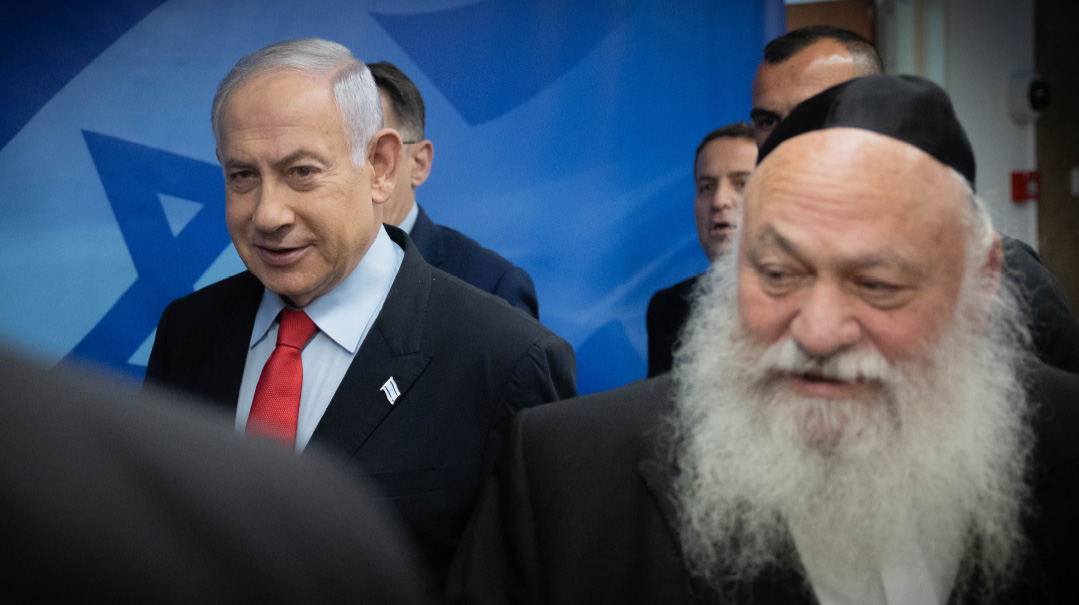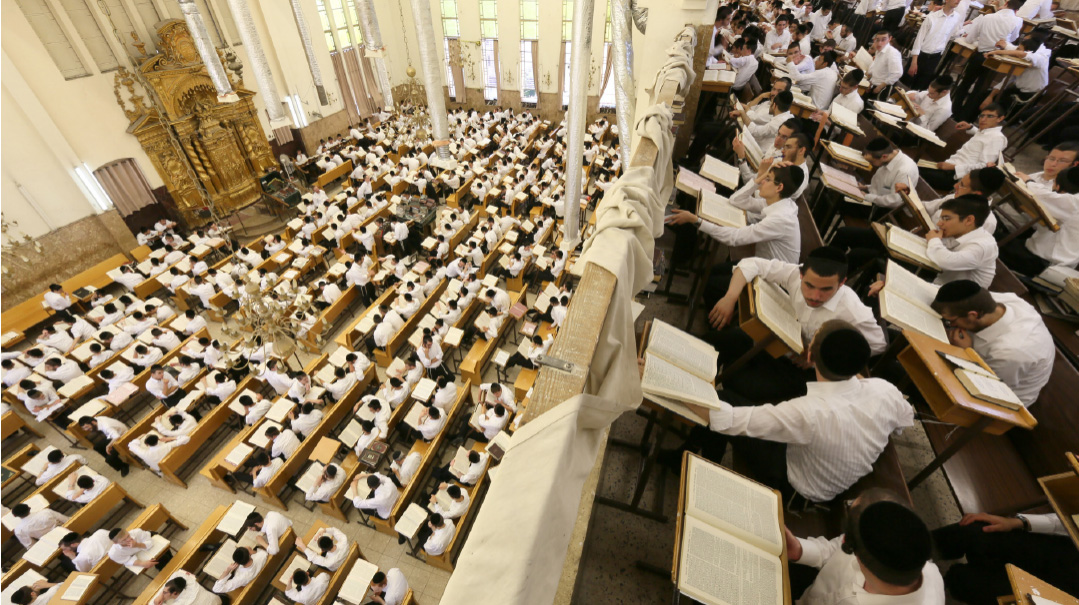Spoils of Victory, or Blame for Defeat?

For now, we can say tentatively that the big winner of the latest spat between Islamic Jihad and Israel is Yair Lapid

“When the cannons roar, the Muses fall silent,” goes the immortal saying attributed (in its original form) to the Roman orator and statesman Cicero. In the week that marked 1,953 years since Titus’s destruction of the Second Temple, the ancient Roman aphorism was on display in Israel. To the echo of explosions, campaigning was put on hold as Israel’s political class rallied in a rare show of national unity.
Binyamin Netanyahu, who over the past year boycotted the opposition leader’s traditional security briefings by the prime minister in a pointed denial of the government’s legitimacy, had no choice but to meet Yair Lapid in the prime minister’s office at the height of the fighting. Later he appeared on American media to defend the Lapid government’s actions.
We’ve seen this war movie before. A little over a year ago, Prime Minister Netanyahu and Defense Minister Benny Gantz managed operation Guardian of the Walls as two bitter rivals from different sides of the aisle. Now Gantz, still defense minister, regards interim prime minister Lapid as a political rival holding the job he covets himself.
Three long months remain before the Israeli elections, but for now, we can say tentatively that the big winner of the latest spat between Islamic Jihad and Israel is Yair Lapid. The decision to launch an offensive bore fruit with the successful elimination of Islamic Jihad’s top brass.
The lack of meaningful security experience was Private Lapid’s Achilles heel. His army résumé as a writer for the military magazine Bamachaneh became a weapon in the hands of his rivals, who mercilessly mocked his lack of experience. From now on, Netanyahu, who ran on the “Mr. Security” ticket, will find himself facing an incumbent prime minister able to measure up and show concrete results from the latest round of fire.
Israeli parties are turning to some renowned number crunchers to try to gain a leg up in the coming election.
Josh Robinson, an American political strategist who specializes in breaking down polling data and identifying trends among swing voters, previously in the US and Europe, is being mentioned in whispers in Netanyahu’s inner circle since the start of the campaign. Mishpacha can now reveal his involvement.
Josh is only the latest in a long list of American consultants hired by Netanyahu over the years, starting with the late Arthur Finkelstein —considered the architect of Bibi’s stunning upset of Shimon Peres in the 1996 election, a campaign that no one but Bibi himself thought he could win.
Finkelstein analyzed Israeli voting patterns and hatched Bibi’s first — but not last — negative campaign: “Peres will divide Jerusalem.” Since then, Netanyahu has never run a campaign without seeking American advice.
Netanyahu secretly brought Robinson to his campaign for an election that represents his last chance. Bibi expects Robinson to dive into the data and discern how, after winning every election for a decade, he has now failed four times in a row, despite using the very same tricks that worked so well in the past.
Meanwhile, a well-known Israeli strategist is also testing the waters: polling expert Yisrael Becher, a talented figure respected across the political spectrum. Everyone has hired him at some point. His past employers include Netanyahu, Benny Gantz, New Hope’s Gideon Saar, and even Shas chair Aryeh Deri.
Becher is currently advising Shas chair Aryeh Deri under the radar. Both strategists have combed the data and independently reached the same surprising conclusion, which in recent days has led Netanyahu to wander the political alleys of Bnei Brak and Jerusalem in pursuit of the chareidi politicians.
The two strategists’ conclusion about the upcoming election was that the Israeli center’s vote hinges on the chareidim. The boxing match between the two blocs will be decided on points rather than by knockout. Netanyahu, who was briefed on Robinson’s conclusions and understands something about the field himself, estimates his chances this time as “fifty-fifty.”
The tie-breaker will be a basket of votes worth about two Knesset seats, representing the “soft right,” establishment conservatives in the mold of Reagan rather than Trump. This demographic consists mostly of affluent, well-educated residents of the center of the country whose natural habitat is more cosmopolitan than traditional. They’re strongly anti-Bibi; but as longstanding Likudniks, the red line they won’t cross is a vote that leads to a left-wing government under Lapid.
These voters might, however, be comfortable with a centrist government led by Benny Gantz. In the last election, they crossed the aisle along with Justice Minister Gideon Saar, a Likud defector who became a chief architect of the change government. In the current campaign, Saar has allied with Benny Gantz, receiving the number two slot on the list. Based on internal polls conducted by the brand-name strategists, Saar’s move will bring about two seats worth of soft-right Likud voters to Gantz — potentially critical in denying Netanyahu’s 61st seat.
So how do the chareidim figure into this? Whereas before they were seen as steadfast Bibi allies, now they’re singing a different tune. Ever since Degel HaTorah chair Moshe Gafni invited key government officials to his granddaughter’s wedding, his faction has signaled openness to both sides.
“This is what’s making soft-right voters tell pollsters that they’ll vote for Gantz,” the strategists explained, “because the chareidim will allow him to form a government.”
To drive home the message that a vote for Gantz would only lead to a Lapid-led government, Netanyahu met with Gafni to plead with him to dispel the fog.
“You have to make clear that there’s no possibility of a government led by Gantz,” he said, also playing the adult in the room on the factional infighting between Degel HaTorah and Agudas Yisrael. “We can’t waste energy on infighting.”
This is Netanyahu’s philosophy on one foot: For the right-wing bloc to fulfill its potential of 61 seats, the right has to project maximum unity and push off internecine conflict till after the elections. It’s better to squabble over the spoils of victory than over the responsibility for defeat.
(Originally featured in Mishpacha, Issue 923)
Oops! We could not locate your form.







